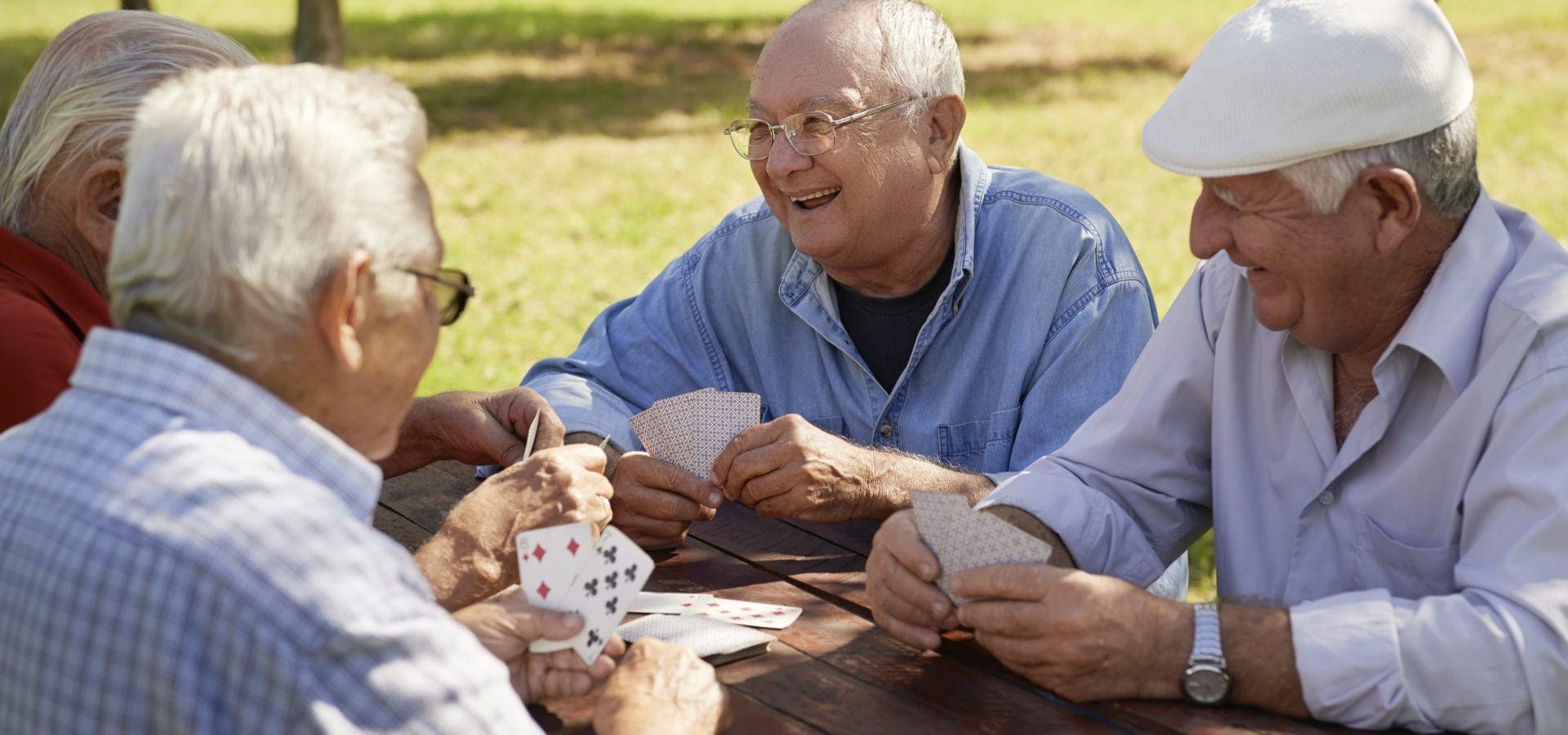But many researchers support “brain training games” to keep your brain healthy, alert and finely tuned. When you imagine seniors playing games, the first thing that probably comes to mind is Bingo. Playing games like bingo require memory to match the letter and number announced to what the card displays, plus fine motor skills to blot or put a marker on the correct number. It also provides social interaction and if they win, a sense of accomplishment. Mentally challenging brain games, such as cards, board games or puzzles, are great for seniors who may not be able to participate in a lot of physical activity.
Card Games
Card games are good for keeping your senior’s brain active because they require varying levels of memory, logic skills, and quick thinking. Bridge is a game that demands memory, strategy, and attentiveness in order to win. Rummy is an old favorite that is relatively easy to learn but great for memory and attention skills, as the players need to track what cards have already been picked up and which have been discarded.
Poker or Blackjack are other fun games that require skill and patience to play. Your senior has probably played Texas Hold’Em or 5 Card Draw at some point in their lives, so you can even let them teach others how to play to really get their memory working hard. The benefit of card games is that almost all of them require multiple people, so in addition to working out their brains, seniors also socialize and avoid falling victim to social isolation.
Board Games
Board games require strategy and are often designed to be easy for people of all ages to play, which can offer a great activity for seniors to do with their grandkids. Scrabble stimulates the memory and visual centers of the brain as seniors need to be able to recognize existing words and remember how to spell others, plus helps work-out fine motor skills in order to place the tiles in the correct order.
Chess is one of the most mentally challenging board games, but if your senior is still able to play difficult games, chess can be a great way to pass the time. Your local community may even have a group that meets up periodically to play, giving your senior the opportunity to socialize and meet new people. Checkers is also a great alternative and less-difficult version of chess.
Word or Logic puzzles
Traditional work and logic puzzles are the most common ways to exercise your brain and stimulate the language and memory centers of the brain. Crosswords and word searches work your memory and problem-solving skills and there are millions of different books or printables to ensure that your senior never runs out of puzzles. Similarly, sudoku challenges the problem-solving and logic side of the brain and can be great for those who prefer numbers over words and letters. Buying a book of riddles is another fun stimulation that your loved one can solve them by themselves or use as an activity with grandchildren.
Apps
While the traditional card and board games remain very popular, there are now digital brain-training games as well. Fit Brains Trainer is an app that has over 360 games and puzzles to enhance memory, focus and brain speed and it adjusts to get more difficult as you get better. Lumosity gives you a “Fit Test” to evaluate your baseline score and then tailors your experience to personal goals such as problem-solving, memory or attention. And Brain Metrix is a free web service with a collection of games focusing on concentration, color, IQ, special intelligence and memory.
Any or all of these games can help to improve different brain functions as seniors age and overall keep the brain healthy and active. A caregiver from About Care Home Care can work with your loved one on playing games and puzzles to keep their brain healthy while also giving them social interaction. Contact us today to learn all the other ways About Care Home Care can help make your senior’s life easier.
